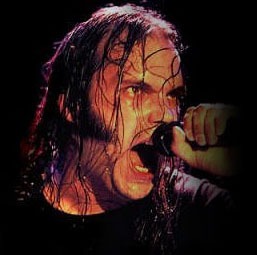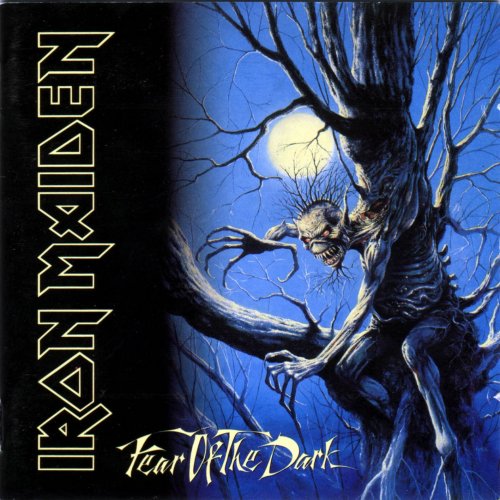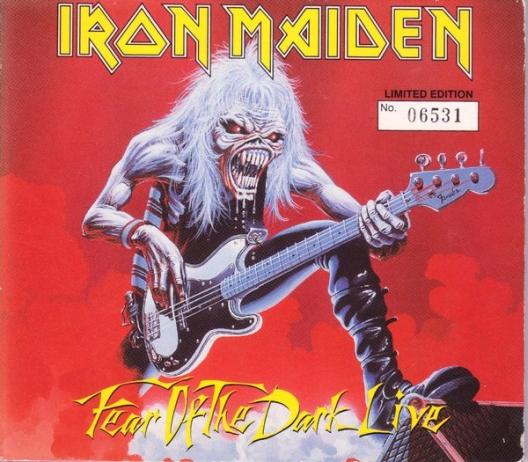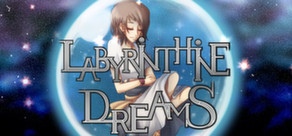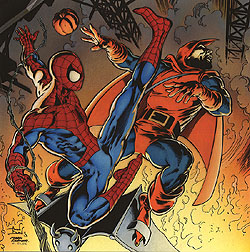 Dance of Death (2003)
Dance of Death (2003)This album shows us what Iron Maiden is truly capable of. After
Brave New World was greeted with near-universal acclaim from critics and fans, the band was emboldened to start pushing themselves. The progressive instincts that developed during the Blaze Bayley era serve the band very well and the result is an epic, emotional, almost overwhelming album made rich by its contrasts. The songs take us into very dark territory at times, but there is also a thread of perseverance and self-discovery that frames the album and leaves the listener feeling stronger. Not every track is great, but the best ones are simply phenomenal.
The reception wasn't as unanimous as the last album - the largesse was simply too much for some critics. The fans seem to like the actual music but will never get over the laughable cover, which looks like a blooper reel from some first-generation CG film from the late 80s. One thing I've learned about Maiden fans since becoming involved with the music is that the artwork on the album covers is
serious business. Still, we're here to talk about the music.
At first, I didn't think I cared for
"Wildest Dreams" all that much. It felt slight and simplistic compared to the complex beasts we'll talk about later. It grew on me when I began to notice the excellent guitar and drums work and started to appreciate the important role it plays in the album as a whole. It begins the "subplot" of self-actualization that will reach its apex in the last track. Plus, the solo nearly burns a hole in your CD player and Nicko's drumming is superb.
 "Rainmaker"
"Rainmaker" is a stunning, beautiful little song. The indispensable Dave Murray (who has a co-writing credit with Bruce and Steve) comes up with a classic riff and his blazing guitar work masks the song's tenderness. The lyrics pay tribute to an unknown person who has made the narrator not only feel better about his own life, but given him motivation to go out and make the world a better place. The effect is likened to a cleansing rain, which fills up "the cracks in our lives." It's deeply romantic without even a hint of cheesiness. What would you rather be told by your significant other? "Oooh baby baby baby baby" or "you are the healing rain that fills up the gaps in my life?"
I can't say that it's Iron Maiden's very best work (a serious contender for that title is coming soon), but
"No More Lies" has meant more to me personally than any of their other songs. With its gentle Celtic intro and understated first verse that gradually gives way to primal shouts of defiance, this song has been hugely inspirational and fostered a great deal of creativity within me. Standing on its own, it still is pretty impressive. The lyrics depict a man facing a major life change (probably death, but this is highly open to interpretation) and is sick of all the world's....well, lies. Fans sometimes deride the repetition in the chorus, but on this song I find it essential. The passionate shouts of "No More Lies!" each followed by a burst of notes, creates a very powerful effect. If I have any complaints, I wish it didn't adhere quite so closely to the typical structure of the Steve Harris epic and that maybe the parade of fierce riffs and solos that make up the middle section was broken up by some more vocals. That aside, this is a song with great power that I can definitely say I've felt firsthand.
The burly, swaggering
"Montsegur" would have fit in perfectly on
Powerslave. Sporting muscular riffs and a huge operatic vocal performance from Bruce, the song evokes the "Golden Age" material and has become a fan favorite. So what is Montsegur? It's a fortress in Southern France that was once a stronghold for the Cathars, a religious sect that was demeed heretical by the Catholic Church and ultimately conquered during the Crusades. The song skewers the hypocrisy of "knight templar" types, who always seem to ignore the compassionate tenets of the religions they are so eager to fight for. These people used to lay siege to castles, now they blow up buildings and protest military funerals. They sucked then and they suck now.
"Dance of Death" is a playful epic with truly stunning instrumentation that makes a pretty compelling case for the often discussed link between classical music and metal. Steeped in the voodoo culture of the Caribbean region (the lyrics even mention the Everglades), the band conjures a spooky tale of a poor sap who stumbles onto an undead ceremony. A distinctive melody is repeated many times to represent the actual dance while our nervous narrator continues to give his thoughts. The three guitarists go for broke on the solos and Steve adds some texture with prominent strings. The vocals, while mostly great, have a few weak points. The line about "lifeless figures" always sounds out of tune when I hear it, and Bruce randomly sings along with one of the riffs near the end, a bit which always struck me as dinky and unnecessary. It's instantly memorable, and one of the most ambitious tracks on an already ambitious album.
The next two tracks threaten to derail the album a bit.
"Gates of Tomorrow" relies heavily on an exotic riff that sounds almost identical to the one in
"Lord of the Flies." The lyrics seem to express ambivalence about humanity's advancing technology, but honestly it's hard to care that much. The verses are quite plain, though it does sport a decent chorus. It's certainly not bad, but feels like quite a drop in quality after the last couple of songs.
"New Frontier" is the only song in Maiden's catalogue where Nicko McBrain gets a writing credit, and the lyrics reveal a striking difference from the worldview of the other band members. Nicko expresses his disapproval of cloning, with the rationale that only God can create life. Usually Iron Maiden has contempt for this kind of regressive religious argument, but the others are good sports and give it their best. Instrumentally, it's not bad at all and, as you might expect, the drums are quite good.

If you've been following this series, you know that Iron Maiden has put out a lot of great songs. The next one is beyond that.
"Paschendale" is special. If any song could dethrone
"Hallowed Be Thy Name" and claim the mantle of Best Maiden Song Ever, this is it. This is the band's most sweeping and emotional tale of the horror, pointlessness and unspeakable tragedy of war, with the infamous World War I battle as its setting. Adrian Smith and Steve Harris have co-writing credits for this one, with the former offering his elegant guitar composition and the latter adding his usual emotional depth. It's perfectly structured, beautifully written and above all, deeply moving. It doesn't need the anger of
"2 Minutes to Midnight" to make the case that war is a horrible crime against humanity - all it needs is the detailed description we get here.
The slow drumming at the intro is actually Morse Code for "S.O.S." The first third of the song, which alternates between quiet verses and very loud bursts of sound, are meant to mirror the rhythms of war. Waiting, followed by horrifying violence, and then more waiting. The solos here are just larger than life. You hear them and you
feel all the tragedy of the war. Even if the lyrics were awful, they could drive home the message by themselves...but the lyrics are brilliant too. The chorus - "home, far away, but the war, no chance to live again" has a double meaning. A literal death will obviously keep the soldier from seeing his home again, but having to kill another human being is also a spiritual death. "The sound of guns can't hide the shame, and so we die at Paschendale." That's the real, heartbreaking, point of this song. Even if you manage to survive the battle, there's a good chance the person you were is gone forever. The ending predicts that the ghosts of the dead, "friend and foe," will gather together in peace. Without the phony rationales for war, there's no need for them to be enemies.
Scattered around the internet are several stories of combat veterans (not necessarily from WWI, there aren't many of them left alive) who break down in tears when they listen to this song. Others have reported that it's starting to be used in a few history classes. The superlative quality of this particular song could take over this entire entry, but I'll end it by hoping that the song's legacy is a long-lasting one (hard to tell with only eight years since its release) and that at least some people out there take its lessons to heart.
Following that song is a daunting task indeed, but
"Face in the Sand" fares well. Steve ably uses strings to create a haunting atmosphere for the intro, shortly before Nicko bursts in with thundering double-bass. Fun fact: this is the only Iron Maiden song where he uses two bass pedals. The lyrics have a rueful cynicism - the world is getting worse, and a lot of folks in politics, media and fundamentalist circles seem to be enjoying it a little too much. The use of "sand" in the title likely refers to the Middle East, the origin of civilization itself and perhaps also the place where its destruction will begin.
"The Age of Innocence" provokes a very complex reaction from me. It has nothing to do with the iconic novel, but is about Steve Harris's grievances with the British judicial system. The disgust was likely inspired by the case of Tony Martin, a man who was put in jail for shooting thugs who broke into his house. Europe tends to go easier on its criminals than America, but I think folks in the USA could also sympathize. After all, convicted criminals in jail have better health care than a lot of well-behaved citizens. While it may be a worthy subject for discussion, the lyrics have all the subtlety of a frying pan to the face. One section where Bruce has some kind of growling-rapping thing going on is just bizarre. It has a nice chorus, but there a lot of style changes and overall the song feels very inconsistent.
Thankfully,
"Journeyman" will cleanse your musical palate and send you home happy. Surprisingly, the guitar in this one is totally acoustic (though a solid electric version does exist) and the soothing nature of the song ultimately makes the defiance of the chorus ("I know what I want, I'll say what I want, and no one can take it away!") even more authoritative. It's a song about freedom and more importantly, the freedom to create and comment on the world through art. The empowering theme of the album's first three tracks returns and gives the listener hope in spite of the tales of war, injustice and discord that have preceded it.
___________________________________________________
Overall Strengths: This massive album reaches stunning emotional highs and the majority of the tracks are great. It was hard to pick just four to recommend.
Overall Weaknesses: When you have material like this, anything that doesn't measure up becomes glaring and this is the case with a few songs.
Recommended TracksRainmaker
No More Lies
Dance of Death
PaschendaleNext: The band goes to a dark, fearful place with
"A Matter of Life and Death."
 Thought this was over, eh? I did too.
Thought this was over, eh? I did too.  Anyhow, the funny thing about this story is that the travails of Ben's personal life are far more interesting that the ludicrous stuff going on while he's in the costume. He's got no money and winds up working at a sleazy club. He meets a potential love interest who has a different hairstyle every time she appears (you figure the artists would coordinate crap like that) and of course, keeps having to worry about getting mistaken for Peter. The main story is a high-tech gang war between the new female Doctor Octopus (aka Carolyn Trainer) and a mobster named Jason Tso, who is in the employ of longtime Spidey nemesis Alistair Smythe. Keep in mind, we're in the mid 1990s here and the "internet and virtual reality will kill us all" paranoia is in full swing.
Anyhow, the funny thing about this story is that the travails of Ben's personal life are far more interesting that the ludicrous stuff going on while he's in the costume. He's got no money and winds up working at a sleazy club. He meets a potential love interest who has a different hairstyle every time she appears (you figure the artists would coordinate crap like that) and of course, keeps having to worry about getting mistaken for Peter. The main story is a high-tech gang war between the new female Doctor Octopus (aka Carolyn Trainer) and a mobster named Jason Tso, who is in the employ of longtime Spidey nemesis Alistair Smythe. Keep in mind, we're in the mid 1990s here and the "internet and virtual reality will kill us all" paranoia is in full swing. 





